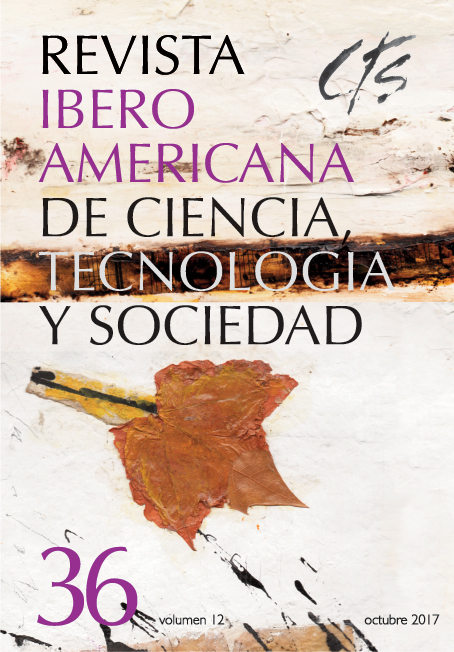Science Policies In Portugal During 40 Years Of Democracy
Keywords:
science policies, scientific system, public policies, C&T, PortugalAbstract
After the restoration of democracy (25th of April, 1974), the changes in public science policies in Portugal were radical and profound. In this paper, the argument is made that the Portuguese science system was developed in four chronological stages, based on the particularities, principles, objectives and foundations of the public policies on science that were framed and defined during the last 40 years. The analysis carried out allows concluding that, in spite of the tensions and clashes of ideas and the alternatives that arose during this period, science policies in general, even though they did not receive the unanimous support of the political forces, had the common objective of constructing a national science system in accordance with international standards of reference.Downloads
References
BAUMGARTNER, F. e JONES, B. (1993): Agendas and Instability in American
Politics, Chicago, University of Chicago Press.
CONCEIÇÃO, P. e M. HEITOR (2005): Innovation for All? Learning from the Portuguese path to technical change and the dynamics of Innovation, Londres, Prager.
COSTA, A. F., CONCEIÇÃO, C. P., PEREIRA, I., ABRANTES, P. e GOMES, M. C. (2005): Cultura Científica e Movimento Social, Lisboa, Celta Editora.
DYE, T. (2010): Understanding Public Policy, 13ª ed., Boston, Longman.
EASTON, D. (1965): A systems analysis of political life, New Yorque, Wiley.
FERNANDES, L. (2014): Portugal 2015: Uma segunda oportunidade?, Lisboa, Gradiva.
FIOLHAIS, C. (2011): A Ciência em Portugal, Lisboa, Relógio D`Água.
GAGO, J. M. (1990): Manifesto para a Ciência em Portugal, Lisboa, Gradiva.
GAGO, J. M. (1992): O estado das ciências em Portugal. Comissariado para a Europália 91, Lisboa, Publicações Dom Quixote.
GONÇALVES, M. E. (1996), “Mitos e realidades da política científica portuguesa”, Revista Crítica de Ciências Sociais, nº 46, pp. 47-67.
GONÇALVES, M. E. (2002): Os portugueses e a Ciência, Lisboa, Publicações Dom Quixote.
HALL, P. (1993): “Policy Paradigmas, Social Learning, and the Stat”, Comparative Politics, n° 25, April.
HEITOR, M. (2015a): “Ciência e Tecnologia após 30 anos de integração europeia e 40 anos de democracia”, em M. L. Rodrigues e P. Silva (org): Governar com a Troika: políticas públicas em tempo de austeridade, Coimbra, Almedina.
HEITOR, M. (2015b): “Ciência e Conhecimento na Modernização de Portugal”, em M. L. Rodrigues e M. Heitor (orgs.): 40 anos de Políticas de Ciência e de Ensino Superior, Coimbra, Almedina.
HEITOR, M. e HORTA, H. (2012): “Science and Technology in Portugal: from late awakening to the challenge of knowledge-integrated communities”, em G. Neave e A. Amaral (eds.): Higher Education in Portugal 1974-2009: a nation, a generation, Dordrecht, Springer.
IMMERGUT, E. M. (2006): “Institutional Constraints on Policy”, em M. Moran et al.: The Oxford Handbook of Public Policy, Oxford University Press, pp. 557-571.
JOBERT, B. e MULLER, P. (1987): L´ État en Action, Paris, PUF.
MARTINS, S. e CONCEIÇÃO, C. P. (2015): “Análise dos impactos: expansão e convergência”, em M. L. Rodrigues e M. Heitor (orgs.): 40 Anos de Políticas de Ciência e de Ensino Superior, Coimbra, Almedina.
MULLER, P. e SUREL, Y. (1998): L´Analyse des Politiques Public, Paris, Montcherestien.
PIERSON, P. e SKOCPOL, T. (2002): “Historical Institutionalism in Contemporary Political Science”, em I. Katznelson e H. V. Milner (eds.): Political Science: State of the Discipline, New Yorque, pp. 693-721.
PINA-CABRAL (2011): “Entrevista a José Mariano Gago por João de Pina-Cabral”, Análise Social, vol. 46, n° 200, pp. 388.
RODRIGUES, M. L. e HEITOR, M. (2015): 40 Anos de Políticas de Ciência e Ensino Superior em Portugal, Coimbra, Almedina.
RUIVO, B. (1995): As Políticas de Ciência e Tecnologia e o Sistema de Investigação, Lisboa, INCM.
Downloads
Published
How to Cite
Issue
Section
License
All CTS's issues and academic articles are under a CC-BY license.
Since 2007, CTS has provided open and free access to all its contents, including the complete archive of its quarterly edition and the different products presented in its electronic platform. This decision is based on the belief that offering free access to published materials helps to build a greater and better exchange of knowledge.
In turn, for the quarterly edition, CTS allows institutional and thematic repositories, as well as personal web pages, to self-archive articles in their post-print or editorial version, immediately after the publication of the final version of each issue and under the condition that a link to the original source will be incorporated into the self-archive.











